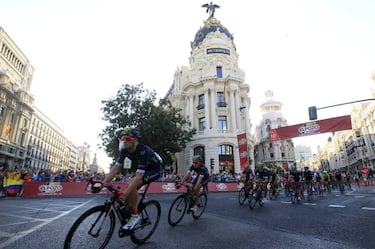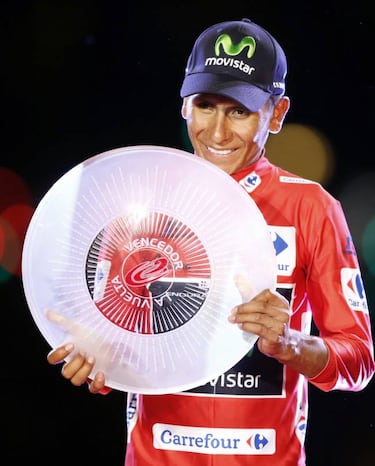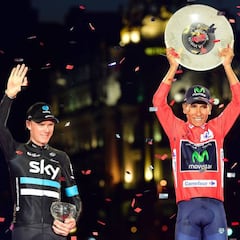Plaza de Cibeles, the capital of Colombia
Colombia takes centre stage
The cyclists ride through the centre of Madrid, under the soft evening light. Colombian flags wave from either side, especially at the circuit’s central point, the Plaza de Cibeles. Quintana was crowned champion, Chaves confirmed his third place on the podium. And between them, the best rider of the moment, Froome, who had to bow to Quintana this time. The massive turn out from the Colombians, their happiness, their pride in showing off their colourful flags, were all justified. Sport doesn’t provide solutions, but instead joy. Tomorrow, they'll back to work, but with a newfound elation.

Natural advantage resumes
Related stories
I like Colombian success in cycling, and not only for the relationship between our two countries, although that’s nice too. I like them because their reappearance in the foreground of the sport confirms that cycling is cleaner. For years, the peloton ‘free bar’ serving the performance enhancer EPO erased the natural Colombian advantage, which had been bred in the nation's mountainous landscape. This edge was interrupted, and they disappeared almost completely from our main races. The slump was ended recently though, with their standard-bearer Quintana. But he is not alone, there are others, amongst them Chaves. This is a sign, in effect, that EPO has been left behind.

Sporting success for peace
Colombia is a beautiful country which is facing a crucial moment in its history: the referendum for peace. And I’d like to think that this sporting success can loosen tensions and give a positive effect on the mood that then translates into a generous decision on what is such a difficult day. We know that Bartali's victory in the 1948 Tour shooed away the specter of a civil war that was about to fall upon Italy that same summer. Colombia is not staring at a civil war, but at the potential end to the many years of war with the guerrillas. Hopefully what Quintana has achieved can serve in the same way as that of Bartali in his day.


